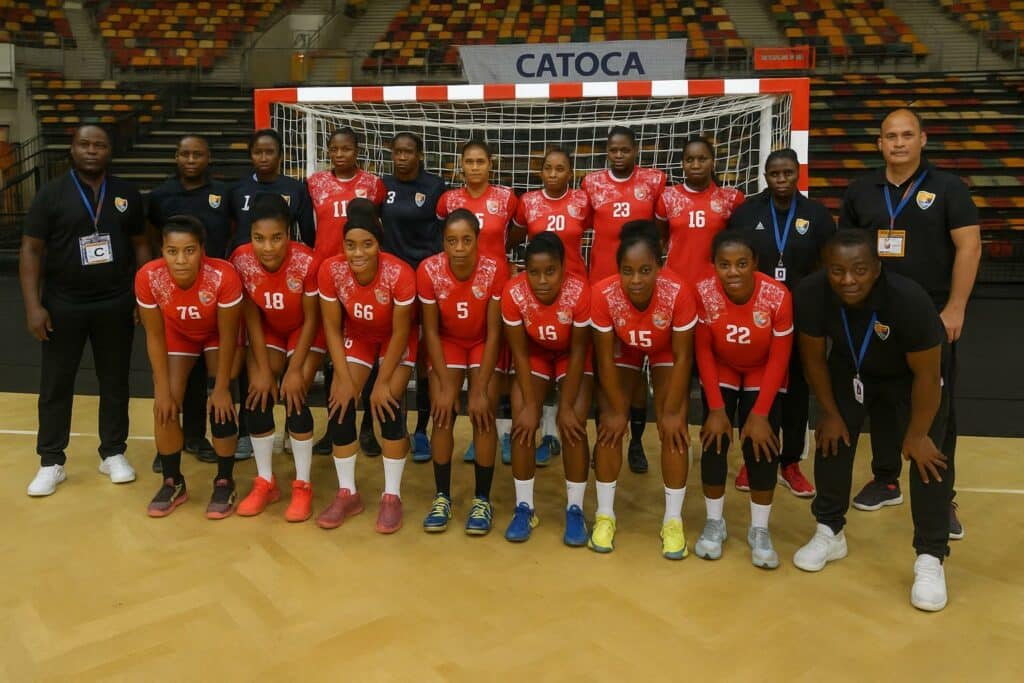Luanda opener sets the tone for the Angola 50 Years fête
An electric atmosphere filled the Kilamba arena in Luanda as the host nation inaugurated the Angola 50 Years international handball tournament, a sporting jewel embedded in the golden-jubilee celebrations of the Republic of Angola. In the curtain-raiser, the Angolan senior women’s team—ten-time African champions—prevailed 25-21 against a Congolese side that refused to be awed by pedigree or home support. The four-goal margin, modest by the standards of recent duels between the two Central African neighbours, drew applause from observers who sensed a competitive balance emerging on the continent.
A tight scoreline fuels early optimism in Brazzaville
Congo’s Diables Rouges entered the court with palpable determination, pressing the Angolan back line from the first whistle. Their intensity produced turnovers and a flurry of fast breaks that unsettled the favourites, restricting the score at half-time to a slender 10-9 in favour of the hosts. Although a few squandered chances hindered the upset bid, the final numbers reveal a defence capable of absorbing pressure after ten months without collective training. Coach Younes Tatby, architect of the revival, lauded his players’ spirit: “We are proud of the team given our limited preparation. We are beginning a new cycle and looking at the next two competitive windows with confidence,” he told reporters beside the court.
Building a squad for the next competitive cycle
In full compliance with the tournament’s special regulations, Tatby summoned fourteen athletes split between the domestic championship and the European diaspora. The blend brings together the raw hunger of home-grown prospects and the tactical polish gained in foreign leagues. For the coach, nurturing cohesion is now the central mission. The staff’s roadmap involves staging regular camps, expanding video analysis and ensuring medical support—preconditions he believes “can turbo-boost Congolese handball if all parameters align.” Minding the backdrop of tightening continental calendars, stakeholders aspire to see the present core evolve into a settled unit ahead of the African Women’s Championship and Olympic qualifiers slated over the next biennium.
Diplomatic sporting ties highlighted by the four-nation field
Beyond the technical stakes, the tournament in Luanda underscores the role of sport in sculpting cordial relations across Lusophone and Francophone spheres. Alongside Congo and Angola, Portugal and Lithuania complete the quartet, offering a cosmopolitan test bench from 17 to 20 September. Angolan organisers see the event as both homage to fifty years of statehood and a platform for budding inter-federation synergies. Congo’s presence, facilitated by the Ministry of Sports and overseen on site by federation president Linda Noumazalayi, illustrates Brazzaville’s commitment to regional engagement through athletic diplomacy, echoing broader government priorities of dialogue and soft-power projection.
Key takeaways and strategic outlook for the Diables Rouges
Losing by four goals to the continent’s benchmark side, especially after a protracted hiatus, offers Brazzaville tangible encouragement. The match revealed a resilient defensive block, promising chemistry between diaspora play-makers and domestic pivots, and a tactical framework that can be fine-tuned with extended preparation. Immediate focus shifts to clashes with Portugal and Lithuania, encounters that will test depth while polishing transitional play. Inside the dressing room the discourse is clear: leverage the Luanda experience to raise standards, then translate lessons into podium ambitions at forthcoming African tournaments. In the words of one senior player, “We left everything on the court tonight; now we must turn this spark into sustained fire.”

